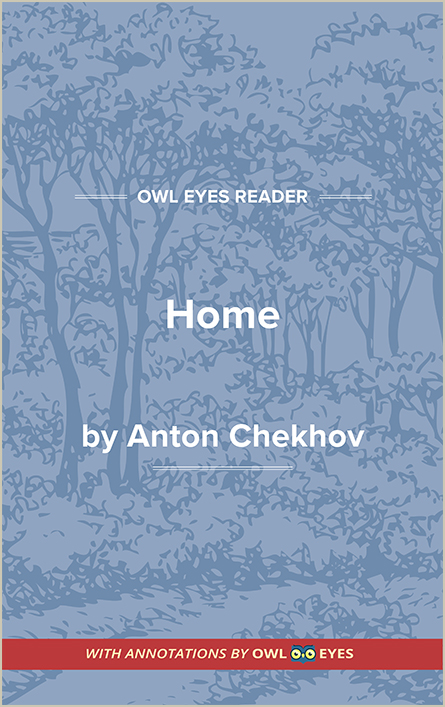Analysis Pages
Vocabulary in Home
Vocabulary Examples in Home:
Text of the Story
🔒"home..." See in text (Text of the Story)
"jurymen..." See in text (Text of the Story)
"embellishments..." See in text (Text of the Story)
"pensively..." See in text (Text of the Story)
"scrupulous..." See in text (Text of the Story)
"savages..." See in text (Text of the Story)
"hurdy-gurdy..." See in text (Text of the Story)
"thrashed..." See in text (Text of the Story)
"urchin..." See in text (Text of the Story)
"reveries..." See in text (Text of the Story)
"monotonous..." See in text (Text of the Story)
"solace..." See in text (Text of the Story)
"Even very intelligent people did not scruple to wage war on a vice which they did not understand...." See in text (Text of the Story)
"flogged..." See in text (Text of the Story)
"caricature..." See in text (Text of the Story)
"pernicious..." See in text (Text of the Story)
"expostulate..." See in text (Text of the Story)
"the little cherub..." See in text (Text of the Story)

